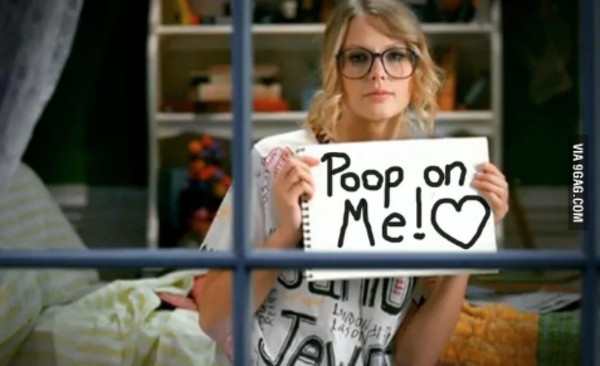Hearing about poo is too evocative and gross in most settings – but if there’s something affecting our health, we have to talk about it.
In her book Stoic at Work, Annie Lawson tells the story of a colleague of hers hearing someone eating pretzels while sitting on the toilet:
“The person holed up in a toilet cubicle – a senior leader – was gnawing on them like a squirrel, taking several bites per pretzel while doing his business. Then his phone rang and he answered. He was the ultimate multi-tasker. My colleague was at the sink washing his hands when he heard a flush and the senior leader emerged from the cubicle with an empty pretzel packet. He nodded, dropped the pretzel packet in the bin and walked out without washing his hands.”
Is this story so hilarious because of the pretzels, the appalling hygiene deficit or because the man was so shamelessly pooing during work hours?
This week, a social media post by Queensland Health called “It’s okay to poo at work” went viral, sparking a conversation that people often only have with a small and specific group of close friends, usually on the understanding that the conversation, unlike the smell coming from that locked stall, will go no further.
Do you poo at work? And if not, why?
It’s tough talking about this, and Queensland Health has been praised broadly for their campaign. It cut through because there’s a distaste around talking about poo. I respect and understand this. I don’t love poo talk, and won’t allow it at the dinner table, for instance. It would be inappropriate with new friends, or while enjoying a soft serve chocolate ice-cream, or when applying a mud mask to one’s face. Hearing about poo is too evocative and gross in most settings.
But this bodily function, like our naked bottoms, needs occasional time in the sun. If there’s something we need education on, or social change, or if there’s something affecting our health – we have to talk about it.
Tackling the Taboo: Why 'It's Okay to Poo at Work' is More Than Just a Hilarious Campaign
Specialist pelvic health physiotherapist Dr Angela James treats patients every day for issues around – gestures to underpants region – that area.
“The more literacy people have about these functions, the easier it is to discuss with a healthcare professional if things go awry,” says James. “Bowel, gut and pelvic health are core pillars to whole body wellness!”
She shows me the Bristol stool chart (Google it). We talk through which poos are optimal. That unmistakable feeling in your body of the urge to poo has a medical name: it’s the “call to stool”. It sounds like a shouty punk band, but avoiding the toilet because you’re at work means you’re ignoring this call.
“It’s important to be responsive to ‘the call to stool’ and prioritise getting to the toilet within a few minutes of this sensation. It is when everything is ‘ready to go’ – stool is in the right position – in the anorectum – combined with a complex interplay of pressure from the abdominal region, relaxation of sphincters and the pelvic floor muscles,” says James.
“If there are consistent delays in this timely response to poo/defecate, there will be a reversal of this complex interplay, where the pelvic floor and sphincter tighten, resulting in the stool moving away from the rectum. The stool can then dry out, becoming firmer and harder, resulting in a need for more pressure to defecate the next time the call to stool comes about. This can be up to a 24-hour delay!”
My dad used to theorise about a slowly spinning cylinder inside his belly – picture the cardboard tube inside a roll of kitchen paper. It is rotating slowly. At 24 hours, it aligns with your bumhole. Quick – that’s the call to stool. He used to joke that if you missed the window, you’d have to wait another 24 hours. And after all these years, I realise his jokey theory wasn’t so far off.
Talking Poo: A Measure of True Friendship?
I hit up the work WhatsApp: “Does anyone feel like talking about shyness/reluctance around pooing at work or public toilets?”
“Thanks for the offer but I’m good,” was one reply.
“My 8-year-old?” was another.
I understood that the circle of people who I can talk to about poo did not include my work friends.
I made a mental shortlist of friends I could bother with this question. Even if they didn’t want to answer – just feeling safe asking the question was a sign our bond was secure. Maybe poo chat is a measure of true friendship and intimacy?
Here are some of the replies:
Reina*: “I was just talking about this with my sister! She never poos in public! For her it’s more to do with hygiene than embarrassment. She’d rather poo at home than spend too long on a public toilet. It’s the seat germs.”
Heidi: “I would definitely poop at work but try to get an empty bathroom stall.”
Katie: “I hate pooing anywhere except at home. Preferably with no one else even in the house. I DON’T KNOW WHY.”
Frank: “I poo at every new workplace as an act of aggression and dominance,” he says (to the delight and approval of the group chat).
Jack: “Not at work! Never ever. Work is a separate realm. It has its own rules and needs. What’s sacred outside work must stay sacred.”
Sam: “I could poo at a friend’s house, yes. However, if the bathroom is in a central area then I’d hold on until the last minute. If it’s around a new partner I’d definitely make up a fake trip to the store or down the street to poop somewhere else. Beautiful people don’t poo.”
The thing I’m taking from this is that people would prefer to answer the Call to Stool with punk rock confidence that they’ll be free of interruption, with privacy and no judgment.
James says the optimal way to poo is with your knees higher than your hips, leaning forward (as though in rapt engagement – my words) and with your abdominal wall lengthened. Short people can benefit from a toilet stool. (That word again!) You set it on the floor of the toilet and put your feet up on it when your cylinder is aligned with the exit strategy. She shows one to me and I end up buying it and taking it home.
Not to work though, obviously.
- I have changed all the names in the feedback quotes but they are all real
The Poo-sitivity of Queensland Health's Viral Campaign
Yumi Stynes is an Australian TV and radio presenter, podcaster and writer.
An Instagram video this month, featuring the statement “it’s okay to poo at work” over a montage of Lisa Frank images of dolphins, rainbows and unicorns set to Neick Sanders’ song Symphony, attracted 22,000 likes and thousands of comments.
A similar, albeit simpler, approach on Facebook – a post that read “Pooing at work. Discuss” – received an equally enthusiastic response, with more than 3000 comments and 5000 likes.
Both posts featured tips in the captions from Queensland Health on how to achieve a “stress-free public toilet poo” experience.
“Lots of people find it difficult to poo in public toilets. But we’re here to tell you it’s definitely okay to go number 2 at work!” the caption read.
“Consistently ignoring your need to poo can lead to stool getting stuck in your colon, hemorrhoids and other serious issues. So, it’s better to let it out than hold it in.
“If you find it extremely difficult to poo around other people, you might have parcopresis.
“Sometimes called ‘poo paranoia’, people with this condition have an overwhelming fear of being judged by others because of the sounds or smells associated with pooing. As a result, they may experience symptoms like increased heart rate, sweating or nausea.”
Other recommendations included avoiding food or drink that “might trigger your bowels”, bringing a “small fragranced spray in the toilet with you” and to “breathe deeply or do a short meditation exercise”.
Facebook and Instagram users, as well as health and marketing experts, have praised the department’s “world leading” social media strategy, and for using humour to help normalise a healthy human behaviour.
“Really well done team. Just when I think it can’t get any better,” one Facebook user commented.
“QLD do sensational health updates!” another wrote.
A third agreed: “I love these qld health public health campaigns, they make me laugh.”
Over on Instagram, the comments shared the same sentiment: “Idk (I don’t know) who the dedicated Instagram person is for QLD health but my god, you are doing a great job and you need a pay rise.”
“This is hilarious,” another said.
“Did the government just put an image of Taylor Swift pooping in my brain?” someone else wrote.
Founder and creative director of advertising agency Campaign Edge, Dee Madigan, described Queensland Health’s social media account as “world-leading”.
“What it shows is a department where the staff feel not scared to do stuff like this because often government departments’ social media is so safe, it’s actually just bland and boring,” she told The Guardian.
“It is actually a serious message, they’re just using social media in the correct way to deliver it.
“Just because something’s a serious topic doesn’t mean you can’t use humour to get into it.”
The Real Problem: Parcopresis, a Hidden Struggle
In recognition of the discomfort people may feel around passing a bowel motion at work, the Queensland Department of Health recently launched a social media campaign with the message “It’s okay to poo at work”.
A colorful Instagram post is accompanied by a caption warning of the health risks of “holding it in”, including hemorrhoids and other gastrointestinal problems. The caption also notes:
If you find it extremely difficult to poo around other people, you might have parcopresis.
Parcopresis, sometimes called “shy bowel”, occurs when people experience a difficulty or inability to poo in public toilets due to fear of perceived scrutiny by others.
People with parcopresis may find it difficult to go to the toilet in public places such as shopping centres, restaurants, at work or at school, or even at home when friends or family are around.
They may fear being judged by others about unpleasant smells or sounds when they have a bowel motion, or how long they take to go, for example.
Living with a gastrointestinal condition (at least four in ten Australians do) may contribute to parcopresis due to anxiety about the need to use a toilet frequently, and perceived judgment from others when doing so. Other factors, such as past negative experiences or accessibility challenges, may also play a role.
For sufferers, anxiety can present in the form of a faster heart rate, rapid breathing, sweating, muscle tension, blushing, nausea, trembling, or a combination of these symptoms. They may experience ongoing worry about situations where they may need to use a public toilet.
Living with parcopresis can affect multiple domains of life and quality of life overall. For example, sufferers may have difficulties relating to employment, relationships and social life. They might avoid travelling or attending certain events because of their symptoms.
We don’t really know how common parcopresis is, partly due to the difficulty of evaluating this behaviour. It’s not necessarily easy or appropriate to follow people around to track whether they use or avoid public toilets (and their reasons if they do). Also, observing individual bathroom activities may alter the person’s behaviour.
I conducted a study to try to better understand how common parcopresis is. The study involved 714 university students. I asked participants to respond to a series of vignettes, or scenarios.
In each vignette participants were advised they were at a local shopping centre and they needed to have a bowel motion. In the vignettes, the bathrooms (which had been recently cleaned) had configurations of either two or three toilet stalls. Each vignette differed by the configuration of stalls available.
The rate of avoidance was just over 14% overall. But participants were more likely to avoid using the toilet when the other stalls were occupied.
Around 10% avoided going when all toilets were available. This rose to around 25% when only the middle of three toilets was available. Men were significantly less likely to avoid going than women across all vignettes.
For those who avoided the toilet, many either said they would go home to poo, use an available disabled toilet, or come back when the bathroom was empty.
Pooing at Work: Unique Challenges and Solutions
In occupational settings, the rates of anxiety about using shared bathrooms may well be higher for a few reasons.
For example, people may feel more self-conscious about their bodily functions being heard or noticed by colleagues, compared to strangers in a public toilet.
People may also experience guilt, shame and fear about being judged by colleagues or supervisors if they need to make extended or frequent visits to the bathroom. This may particularly apply to people with a gastrointestinal condition.
Using a public toilet can understandably cause some anxiety or be unpleasant. But for a small minority of people it can be a real problem, causing severe distress and affecting their ability to engage in activities of daily living.
If doing a poo in a toilet at work or another public setting causes you anxiety, be kind to yourself. A number of strategies might help:
- identify and challenge negative thoughts about using public toilets and remind yourself that using the bathroom is normal, and that most people are not paying attention to others in the toilets
- try to manage stress through relaxation techniques such as deep breathing and progressive muscle relaxation, which involves tensing and relaxing different muscles around the body
- engaging in gradual exposure can be helpful, which means visiting public toilets at different times and locations, so you can develop greater confidence in using them
- use grounding or distraction techniques while going to the toilet. These might include listening to music, watching something on your phone, or focusing on your breathing.
If you feel parcopresis is having a significant impact on your life, talk to your GP or a psychologist who can help identify appropriate approaches to treatment. This might include cognitive behavioural therapy.


















